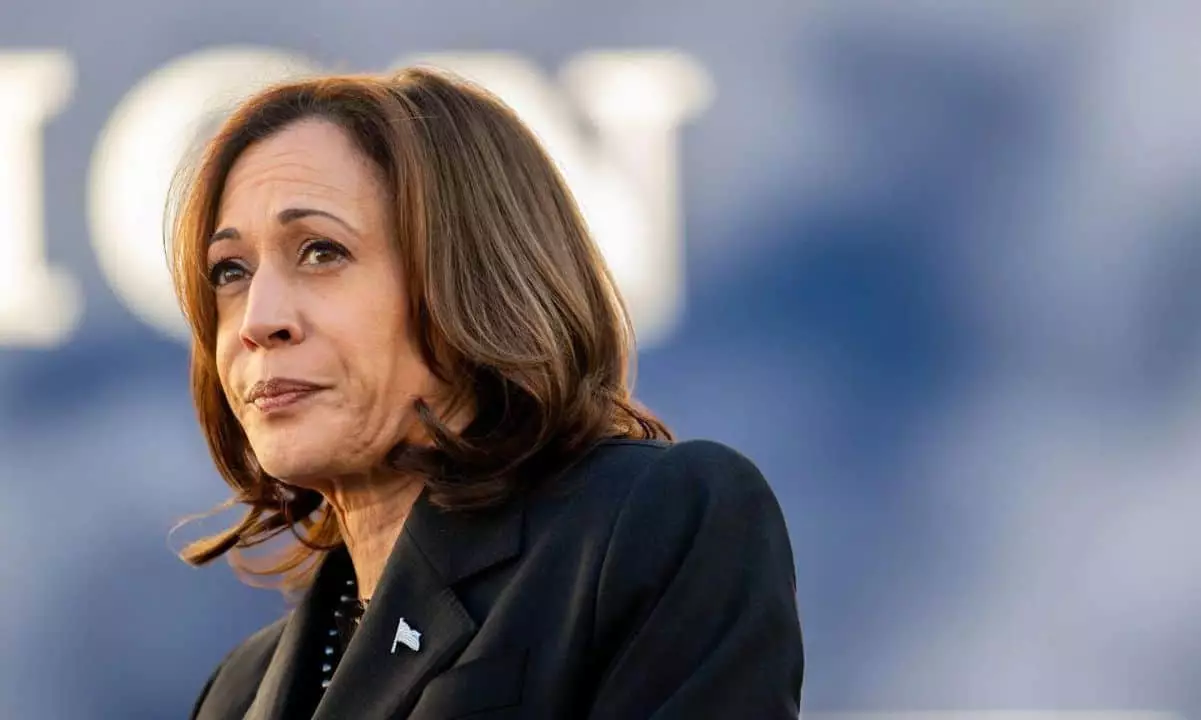The relationship between the cryptocurrency industry and political figures is often fraught with tension, misunderstanding, and shifting allegiances. Recently, the digital asset lobby group Stand With Crypto, which enjoys backing from major industry players like Coinbase, found itself in the midst of a contentious debate following its ranking of Democratic presidential candidate Kamala Harris’s stance on cryptocurrencies. Initially graded with a “B” for being perceived as a supporter of the crypto industry, the organization quickly faced backlash that necessitated a reassessment of its evaluation.
This incident illustrates the complexities and scrutiny surrounding politicians’ relationships with emerging technologies like digital currencies. On September 22, during a New York fundraiser, Harris made statements about fostering innovation, referencing both artificial intelligence and digital assets as areas for growth. Although her comments were seen by Stand With Crypto as a largely positive endorsement that merited a high grade, many within the cryptocurrency community regarded such statements as tepid and insufficient for substantial support.
The feedback received from experts and enthusiasts alike highlighted a glaring inconsistency. Critics pointed out that Harris’s engagement with the crypto space pales in comparison to her Republican counterparts. Donald Trump, who secured an “A” grade for his fervent support of cryptocurrencies, has made significantly more declarations favoring the technology, tallying at least 21 public statements on the topic. Many voices within the crypto sphere, including Bitcoin advocate Wayne Vaughan, deemed Harris’s remarks as merely “neutral,” underlining the difference between rhetoric and actionable support.
The concern among cryptocurrency enthusiasts goes beyond mere rankings; it reflects a broader anxiety regarding the Biden-Harris administration’s perceived hostility regarding digital assets. Michael Cairo, a lawyer specializing in the crypto sector, underscored that the administration has historically been lukewarm at best towards cryptocurrency initiatives. His critique of Harris’s ranking on Stand With Crypto’s platform reflects a deep-seated skepticism about the adequacy of her support, rooted in a history of legislative ambiguity toward the crypto industry.
Amidst the backlash, venture capitalist @HelpedHope leveled accusations against Stand With Crypto, suggesting the group may be trying to position itself as a negotiator for both political parties to secure a foothold regardless of the election outcome. This skepticism regarding Haris’s vague references to digital assets points to a critical need for clarity in political discourse around cryptocurrency. By broadly categorizing “digital assets,” politicians risk creating misunderstandings that could mask their true positions on the issues.
Following the uproar, Stand With Crypto took remedial action, adjusting its assessment system in response to the public outcry. Executive Director Logan Dobson announced a shift in the organization’s approach, emphasizing the importance of more comprehensive information before granting grades to political figures. This pivotal change demonstrates a willingness to address community concerns and refine criteria for evaluating political support, while also recognizing the nuances in candidates’ positions.
The discourse surrounding Harris’s gradation by Stand With Crypto exemplifies the disparity between political intentions and the expectations from the cryptocurrency populace. With Harris’s profile shifted to reflect “not enough information” on her crypto stance, it becomes increasingly essential for candidates to articulate clear, actionable policies regarding the burgeoning digital asset landscape.
As political campaigns continue to evolve with the growing influence of cryptocurrencies on the economy, candidates will face mounting pressure to substantiate their claims with tangible actions. For a more nuanced understanding of each candidate’s position, the crypto community demands transparency and clarity. The episode serves as a reminder that sentiment alone is not enough for a favorable ranking in an industry that thrives on blockchain’s principle of transparency and accountability.
In an era where technological advances intersect with political ambitions, it is incumbent upon both politicians and lobby groups to engage thoughtfully, thereby shaping regulations that foster innovation while also safeguarding the interests of the broader public. The landscape of cryptocurrency advocacy in politics will continue to evolve—it remains to be seen how well politicians can adapt to meet the expectations of this dynamic community.

